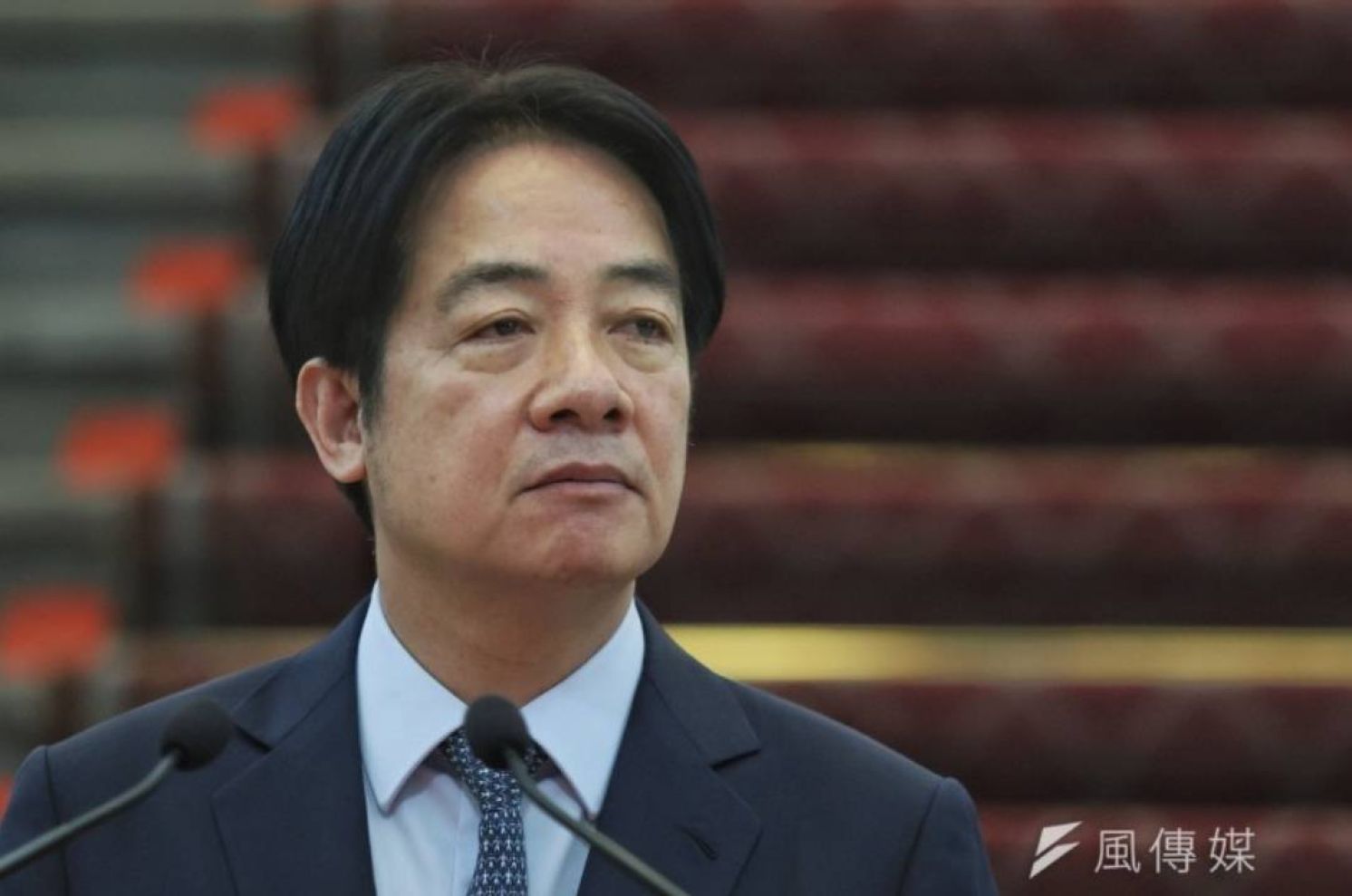
Taiwan Returns to Era of Martial Law, Without Martial Law
The Storm Media, March 14, 2025
History is a mirror that reveals the truth. Thirty-eight years ago, President Chiang Ching-kuo decided to lift martial law because the so-called "martial law that is not (military) martial law" neither affected people's daily lives nor was understood by democratic countries. Thirty-eight years later, President Lai Ching-te, citing five major threats and 17 strategies, has urged the government to amend the law, seemingly steering Taiwan back into an era of "martial law that is not martial law." At the same time, as chairman of the Democratic Progressive Party (DPP), President Lai has issued a mobilization order, instructing all party officials to participate in eight "The People Are the Boss" campaign events.
President Lai is playing the authoritarian card of the two Chiangs, but his real intention is to create an atmosphere of suppression through a mass recall campaign. Whether this is a smart or foolish move remains to be seen until the recall ends. However, Lai’s transition from a "minority president" to an "authoritarian president," attempting to override public opinion and alter the nation’s course based on his personal will, exposes his stubborn and extreme political flaws. Regardless of how the recall concludes, his leadership style has already proven that he cannot be a "president for all people," let alone a "symbol of national unity."
Among the most shocking aspects of President Lai’s speech, which was under 4,000 words, was the proposed reinstatement of military trials. A decade ago, the Hung Chung-chiu case brought 250,000 people to the streets, leading to the abolition of military trials during peacetime. Although the Military Trial Act was not completely repealed, it was revised to state that only active-duty military personnel violating the Military Criminal Code during wartime would be subject to military trials, while peacetime cases would be handled under the regular criminal justice system. No wonder President Lai’s remark about "restoring military trials" has raised concerns—is Taiwan preparing for a "wartime state"? Ironically, the key figure in dismantling the military trial system back then was none other than current Minister of National Defense Wellington Koo. Minister of Foreign Affairs Lin Chia-lung and Vice President Hsiao Bi-khim also strongly advocated for military justice to return to the civilian judicial system, considering it a step forward for human rights and judicial fairness in the military. Even Mr. Lai himself once criticized Speaker Han Kuo-yu’s controversial remark that "without military law, it’s like a eunuch wearing a suit," accusing him of making an inappropriate analogy. Back then, Mr. Lai believed that "military law is not a core component of national combat capability."
The Kuomintang (KMT) once defended the necessity of military trials to maintain strict military discipline. Now, President Lai justifies their reinstatement by citing the urgent threat of Chinese infiltration—essentially, to find internal enemies and catch spies. However, the number of infiltrated active-duty soldiers is minimal, and non-military personnel are constitutionally exempt from military trials, as confirmed by previous constitutional interpretations. If the issue is truly about espionage, harsher penalties can be imposed under the Military Criminal Code, and existing laws such as the Anti-Infiltration Act, National Security Act, and Criminal Code can be strengthened to address espionage concerns. Insisting on restoring military trials will inevitably spark legal debates, making it clear that President Lai is not targeting the military—he is creating trouble for himself.
President Lai’s extensive 17 strategies cover a range of national security legal frameworks, including the National Security Act, the Anti-Infiltration Act, the Act Governing Relations Between the People of the Taiwan Area and the Mainland Area, Act Governing Relations with Hong Kong and Macau, Cyber Security Management Act, and more. Whether these amendments can even be proposed during the recall period remains uncertain, let alone passed. However, one immediate effect is clear: they provide the DPP with tools for political smearing. Those opposing the recall, criticizing the DPP, opposing President Lai, or rejecting these legal amendments could all be labeled as "collaborators." The logic is simple—if you are not "one of us," you are the enemy. The net of repression is cast wide and far.
On the eve of Beijing’s event commemorating the Anti-Secession Law, President Lai has attempted to seize the narrative, orchestrating this "grand entry that is not a grand entry" for the mass recall campaign, marking the beginning of Taiwan’s return to "martial law that is not martial law."
President Lai cited strategic scholar Kerry K. Gershaneck’s argument that "China seeks to divide and conquer us through subversion, infiltration, media acquisition, media warfare, psychological warfare, and legal warfare," planting seeds of discord in our society to keep us distracted by internal conflicts and blind to external threats.
Unfortunately, in Taiwan, it is the DPP itself that engages in media acquisition, media warfare, psychological warfare, and legal warfare. It is the DPP that seeks internal enemies and divides society while ignoring Taiwan’s precarious position in a turbulent global order. Village chiefs visiting China are indicted, parliamentary conflicts result in subpoenas, and opposition lawmakers are all labeled as "Chinese Communist collaborators." If this is how the mass recall campaign is used to reshape the parliamentary landscape, then Taiwan may truly be heading toward martial law once again.
From: https://www.storm.mg/article/5338976?mode=whole
〈Back to Taiwan Weekly Newsletter〉